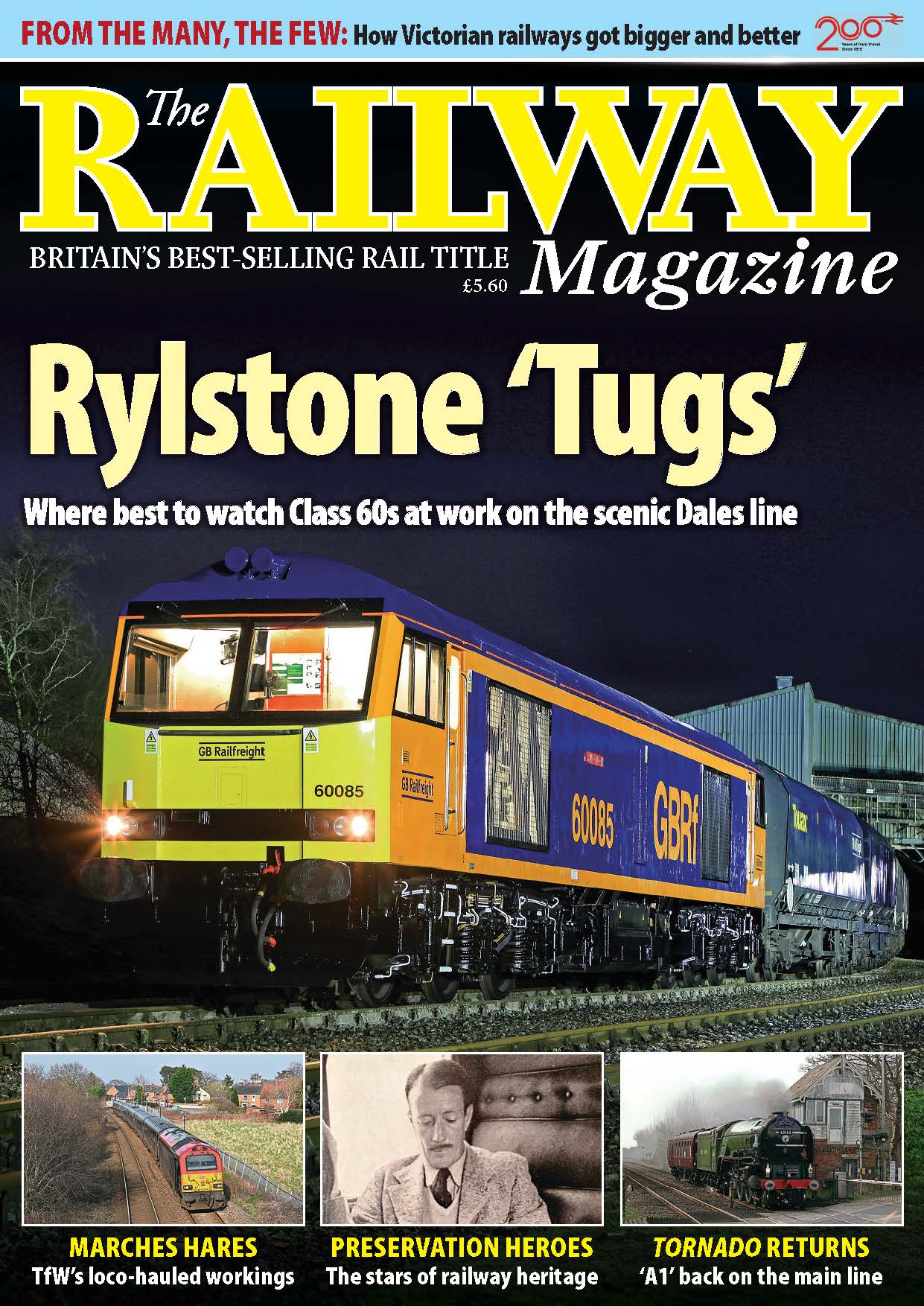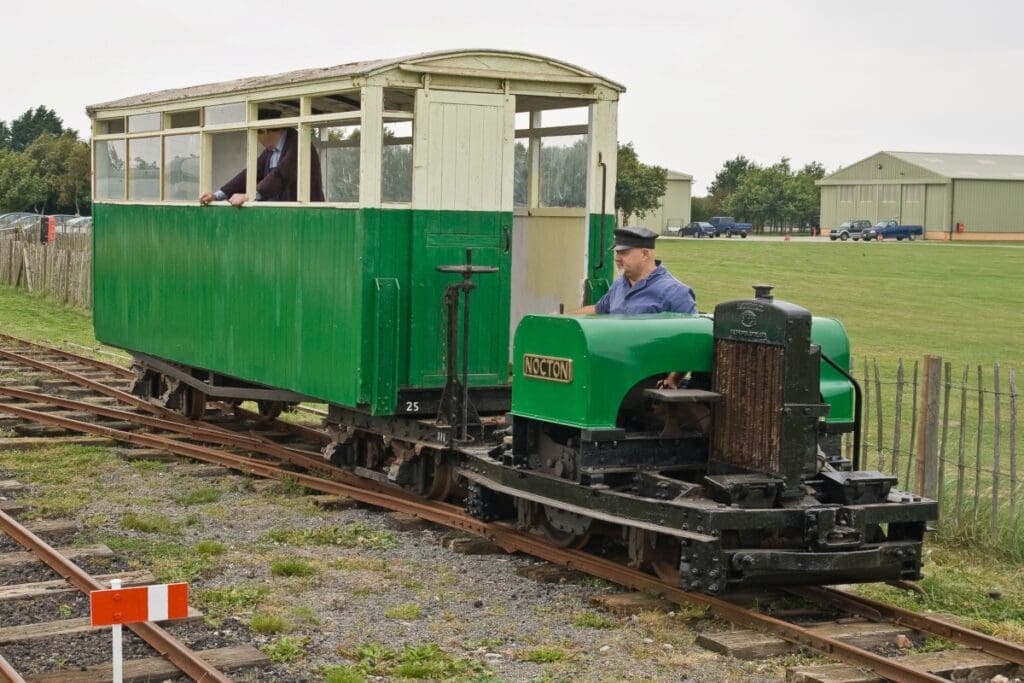
For the 2022 season, the Lincolnshire Coast Light Railway needs a third passenger vehicle so
it can run three-coach trains to cope with growing passenger demand.
The limited platform length at Walls Lane Station means that a short coach is required and the only one of the railway’s unrestored coaches that fits the bill is the Nocton shooting coach, referred to as the ‘Queen
Mary’.
It is now being restored, without windows, to provide a semi-open-air coach for the LCLR train service.
Volunteer Jim Smith explains that the coach was built on the Nocton Estate Light Railway in
1926 or 1927 to transport shooting parties on the estate – where much of the LCLR’s stock came from. The name Queen Mary came from the estate workers, as the coach was for the owner and friends only. The LCLR Simplex loco ‘Paul’ was used to take the shooting party in the Queen Mary coach out onto the estate with an ex-Second World War ambulance van for the beaters, dogs and the shot game. It was also used to transport the Narrow Gauge Railway Society on their visit to the line in 1955, when the idea of establishing the Lincolnshire Coast Light Railway at Humberston was first discussed.
The coach originally had sliding doors at each end and is reported to have either had six office-type chairs (shaped plywood seat and back on a metal frame) for the users to sit on, or 10 leather chairs. Stewart Squires, in The Lincolnshire Potato Railways, says: “There were comfortable individual seats, each with a
rack for drinks, and a gun rack for the use of the estate shooting parties. It was usually coupled to a box van fitted with game racks. There were two rules, the first that the train would leave the estate yard at precisely 9am on shooting days and that there was to be no firing from the windows.” Based on rule two, it was clearly intended that the coach would get the shooters close to the shoot location, but that they would need to disembark and walk to the actual shoot site.
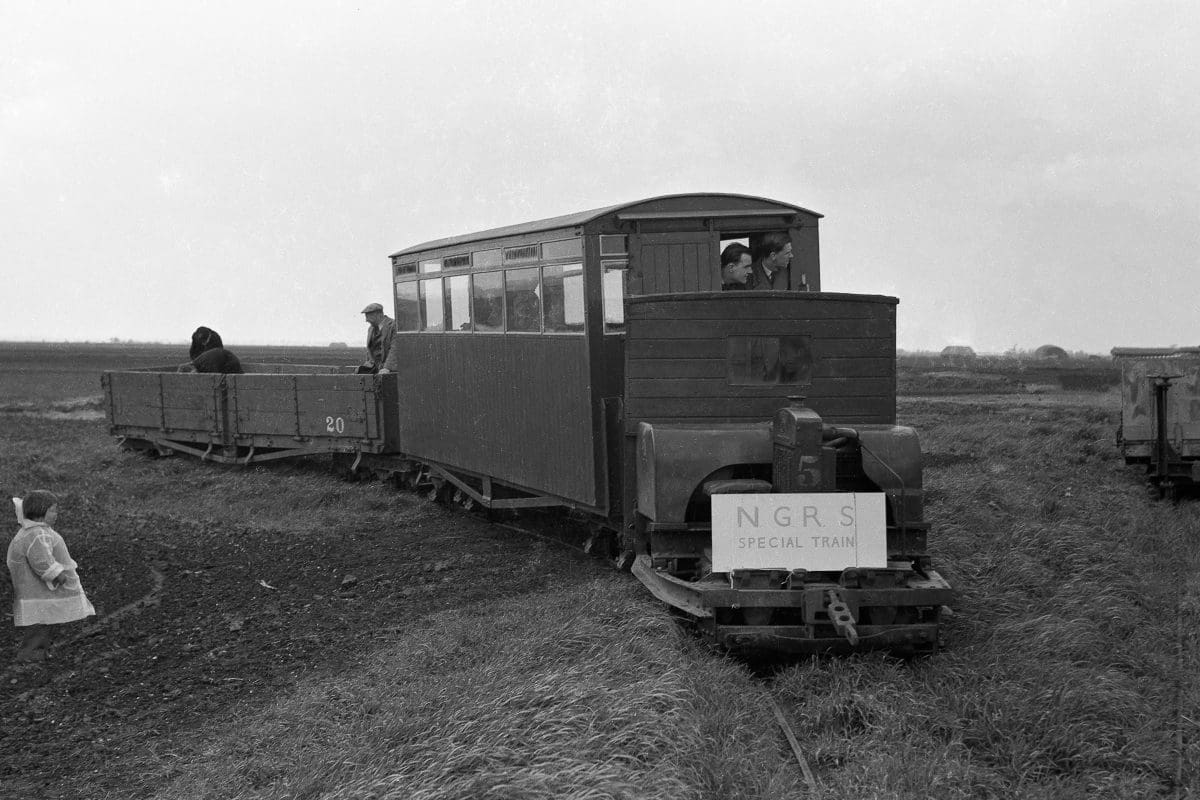
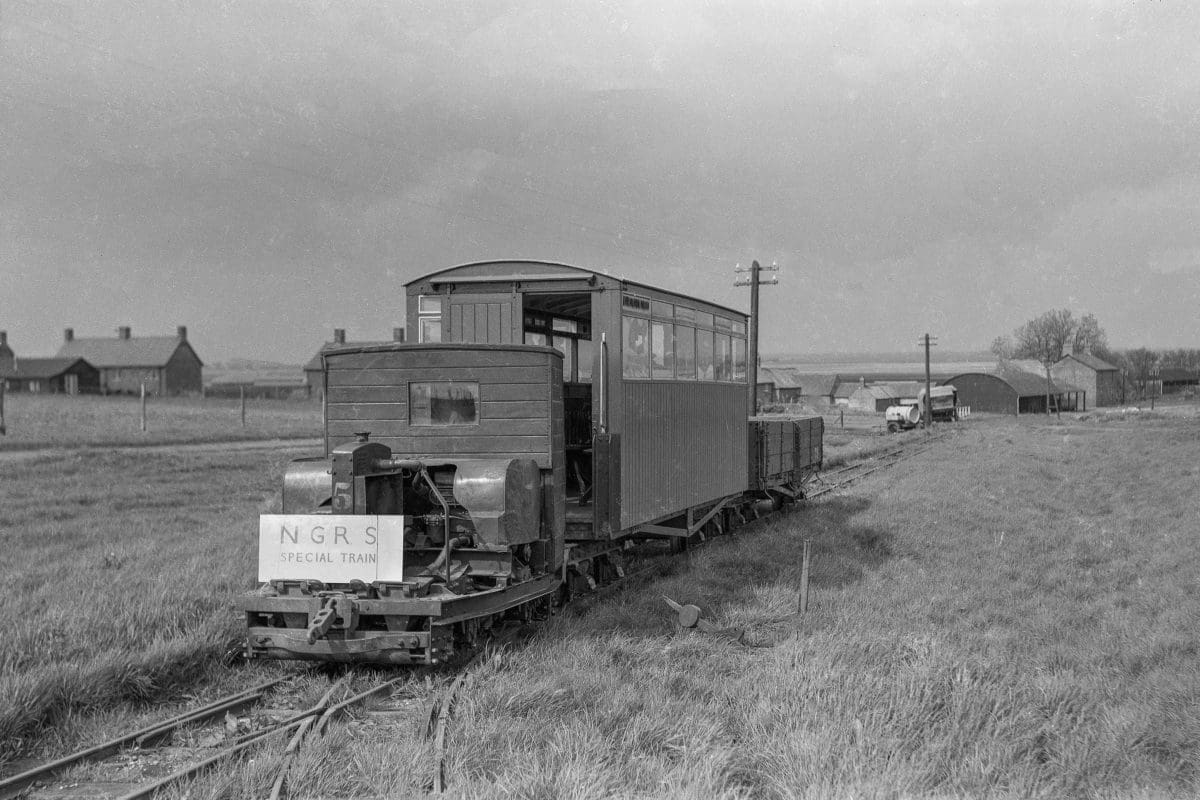
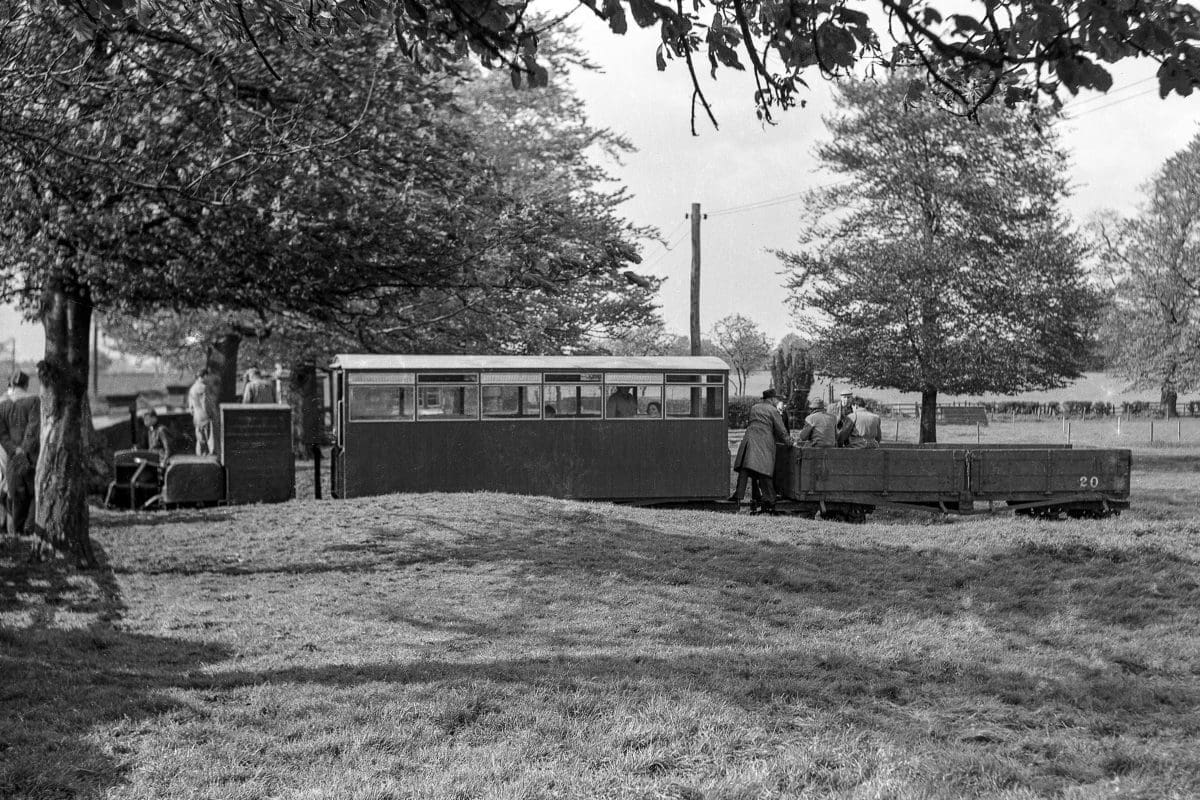
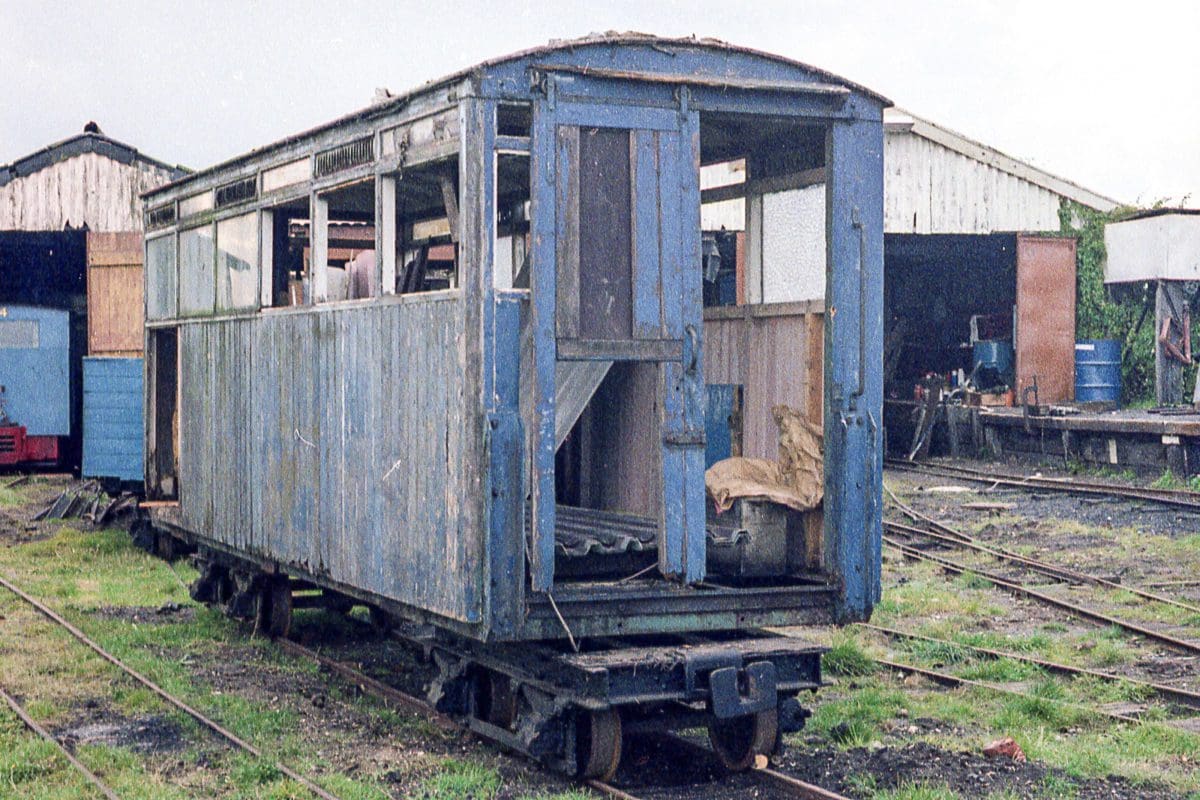
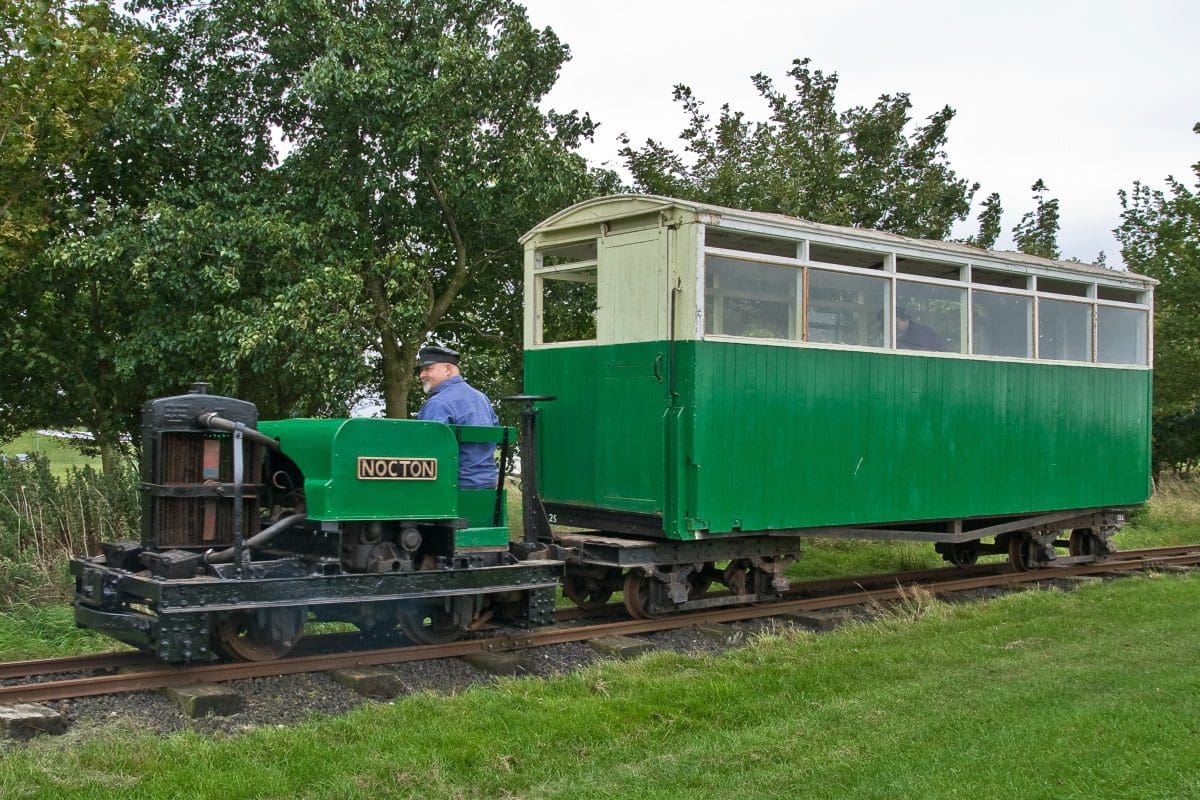
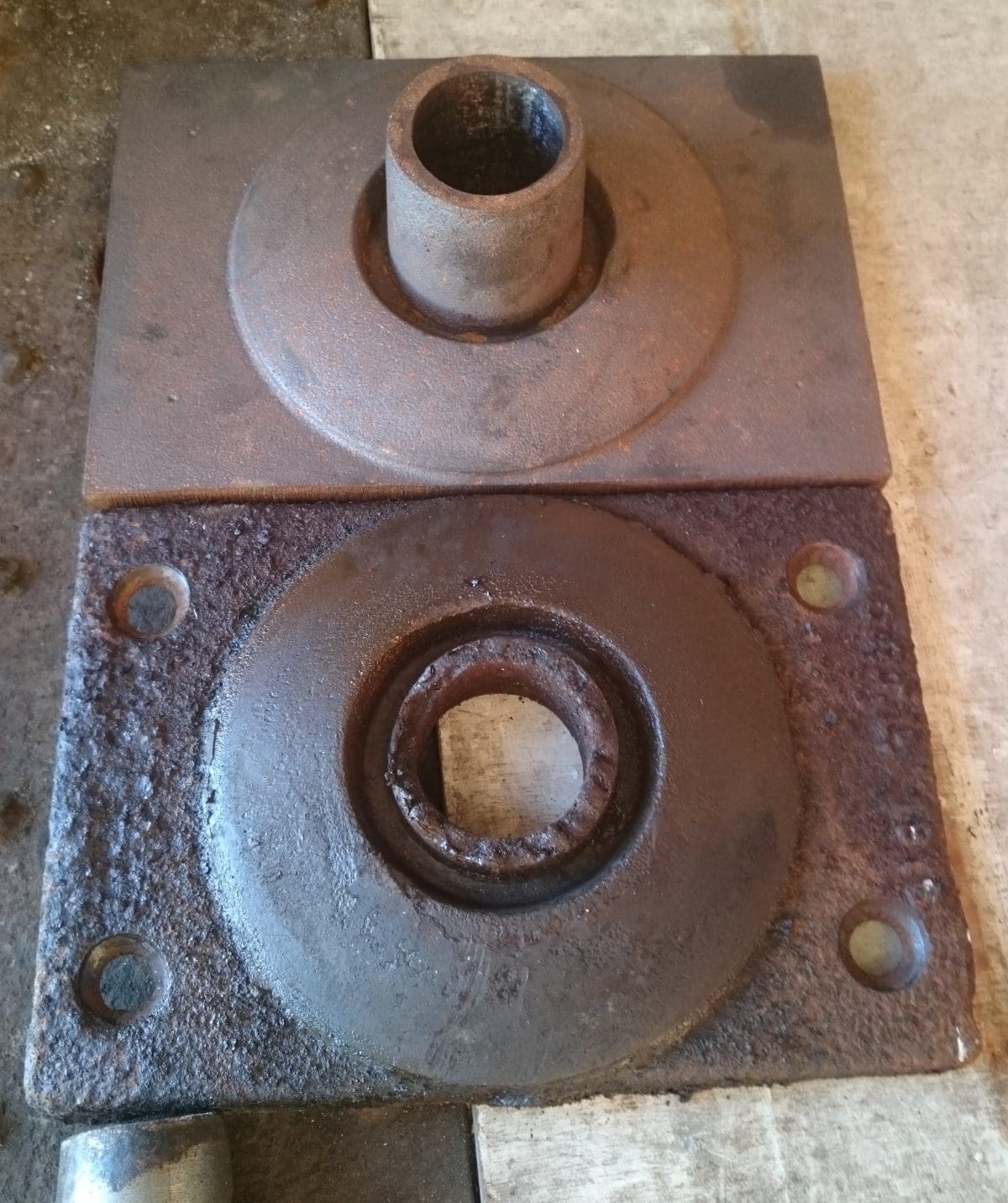
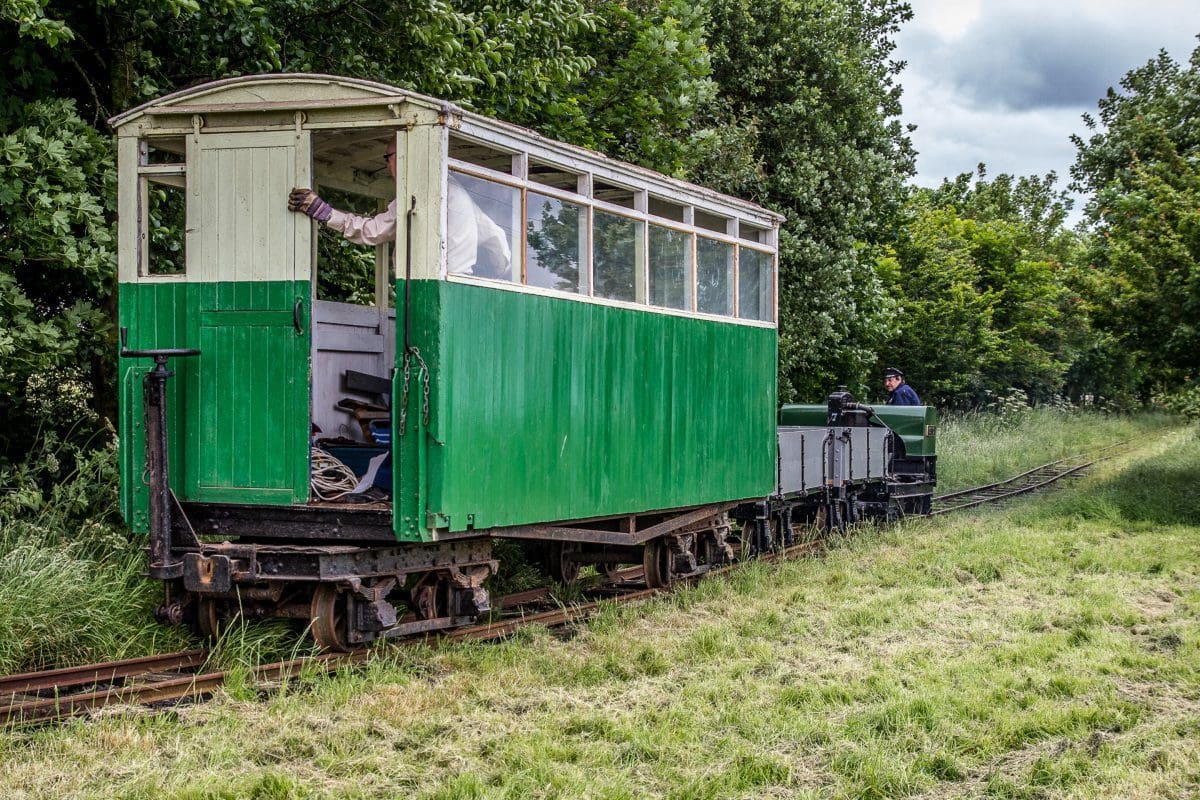
The coach was built onto a steel-framed War Department Light Railway Class D bogie wagon. After the Nocton line closed around 1969 it was used as a taxi office in a garage in Boston, which preserved the wooden body. It was presented to the LCLR at Humberston but has never been used to carry passengers. When it moved to Humberston, it was in blue livery with white window frames.
Eddie Draper, LCLR company shareholder, former volunteer and director, remembers its arrival. He said: “When it arrived in the winter of 1978-79, both ends had a sliding door and there were no openings in the sides. This was entirely inappropriate for our use, so I set to and cut a single window and body side section out on what was then the platform side, and I think someone else blocked one or more ends.”
Mick Allen, one of the longest-standing volunteers, recalls it arriving in a very dilapidated state. Some of the underframe had been cut away to allow it to sit on the ground without bogies. Eddie repaired the underframe, replacing the main cross member and truss rods. The conversion to a LCLR passenger vehicle at Humberston was never completed and it was used instead as a stores van.
When Humberston closed, it was stored at Burgh le Marsh, along with much of the rest of the railway. At some point (probably at Burgh le Marsh) the late Bill Woolhouse, one of the LCLR’s founders and directors, and Astling Evison, an LCLR director who helped rebuild the line on its present site, recovered the roof and re-clad the sides with thin match board. It was also painted green and cream at this time, its Nocton livery having been dark blue with white window frames.
The panel and window frame which Eddie had removed were subsequently reinstated by Bill Woolhouse at the Skegness Water Leisure Park. Since then the coach has been stored safe and under cover but until recently no work has been done on it. It has seen occasional outings on the railway on special demonstration trains alongside other ex-Nocton locos and rolling stock at annual galas.
Mick Allen has been involved in the current restoration of the Nocton coach and is hopeful that the restoration will be completed in time for the coming season. When the job was started, it was found that most of the bottom bodywork framing was rotten and has all had to be replaced, as has some of the body side framing. This is almost complete, and once the new correct thickness side cladding is in place it will start to look more like a coach again. A complete new floor has been made off site and is ready for fitting. A
new side door and a full set of seating are also complete and ready to fit. The ‘bogie men’ have been busy doing their stuff working on a refurbished air braked and an un-braked bogie for the vehicle so hopefully it will all come together this spring.
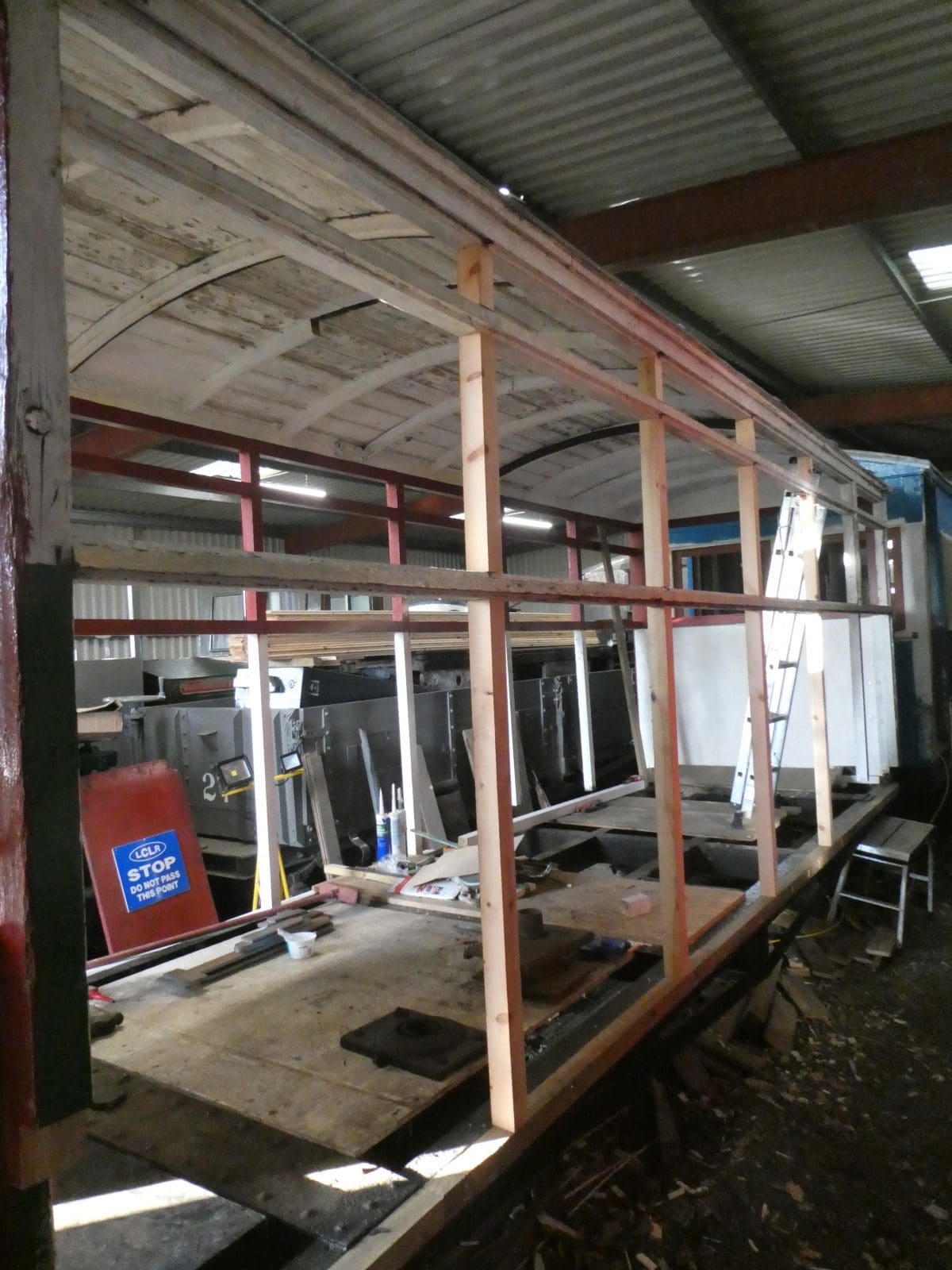
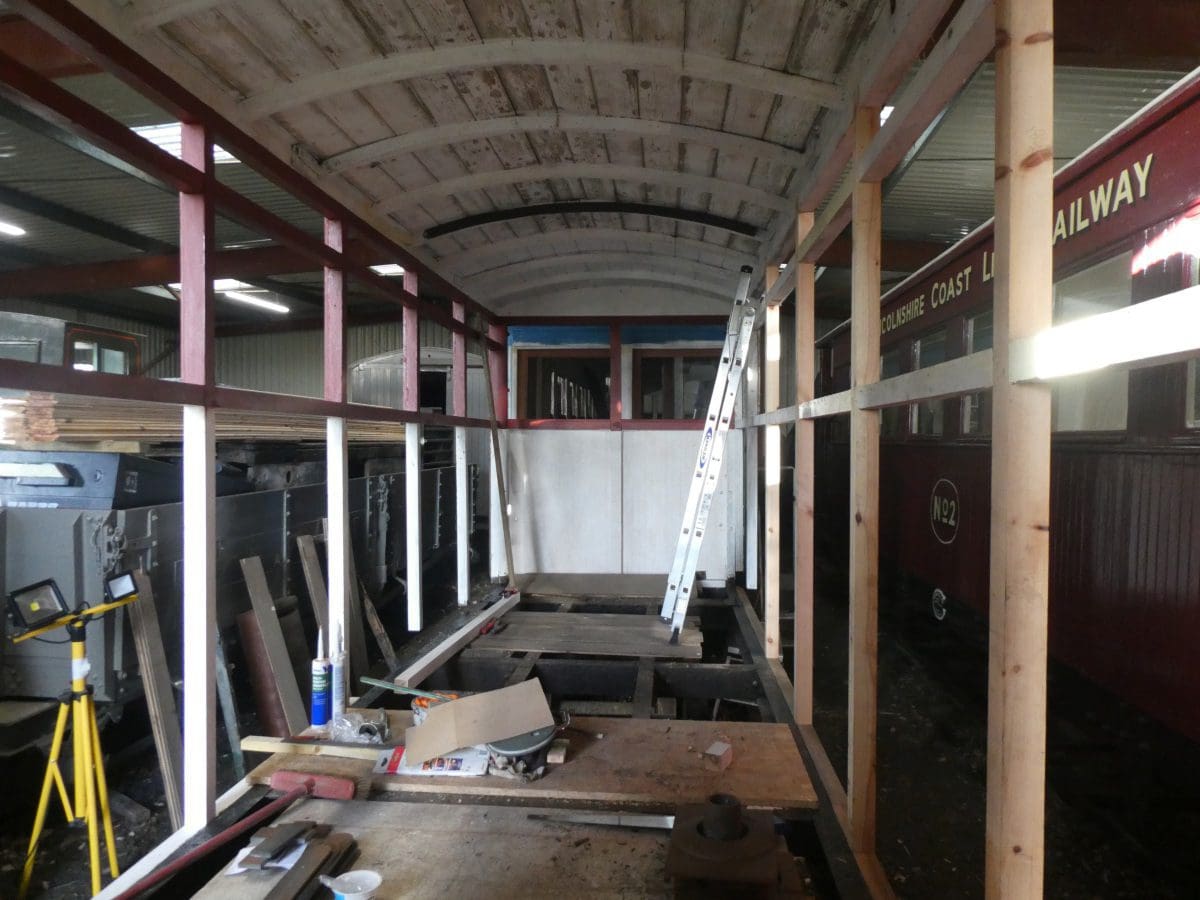
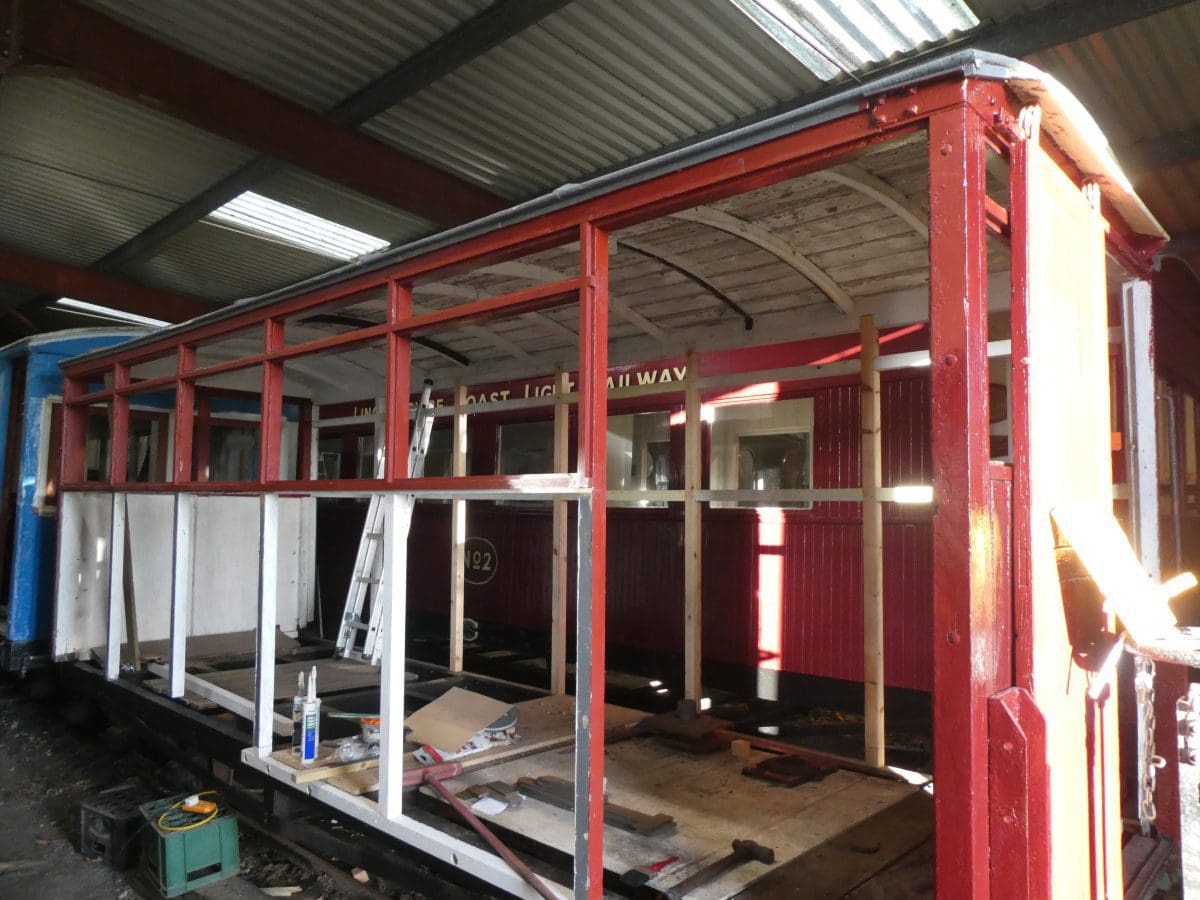
To find about more about the LCLR, click here. With thanks to the photographers, the LCLR, and the Skegness Water Leisure Park for this article.
